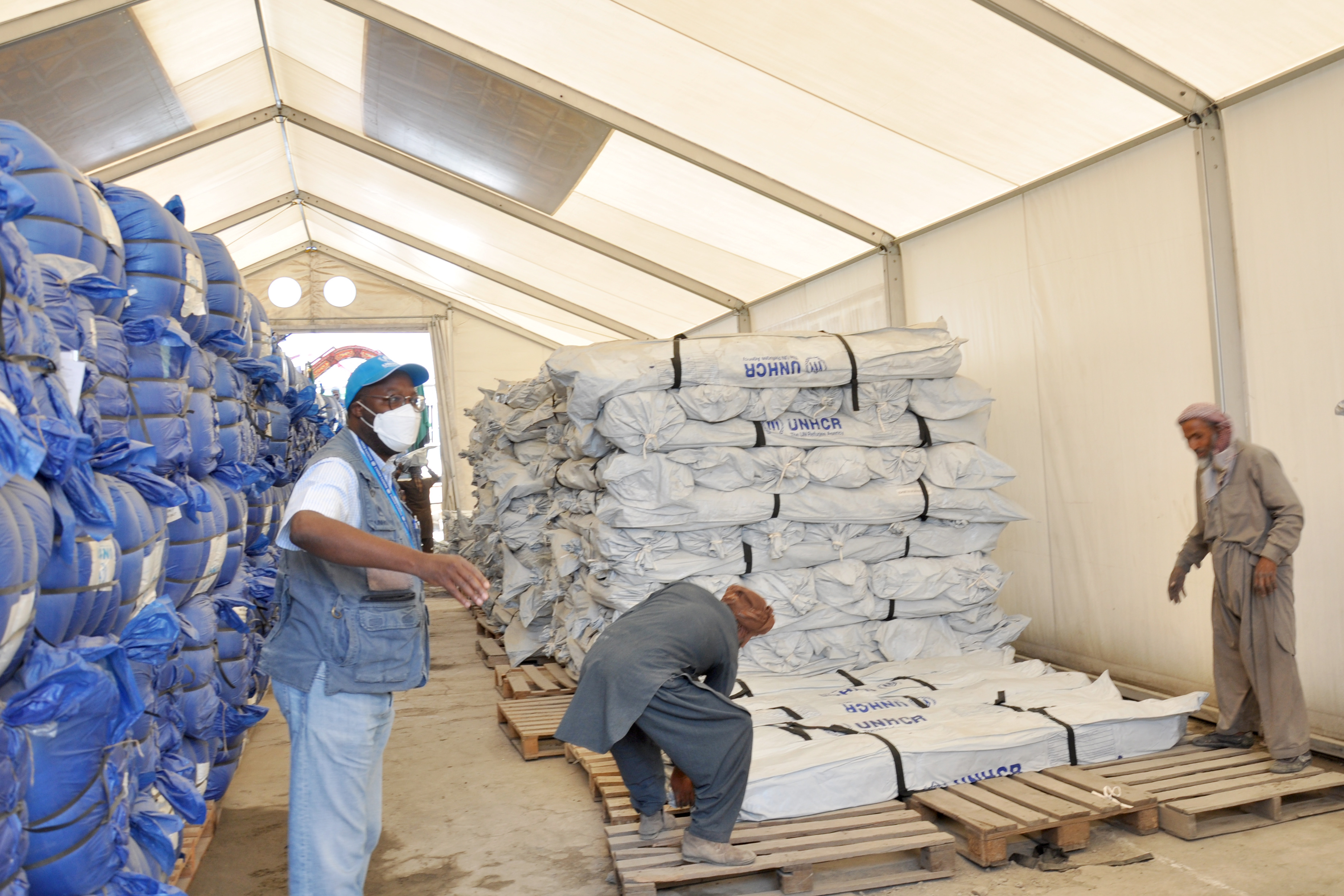Two camps of thought on relocation in Pakistan's quake zone
Two camps of thought on relocation in Pakistan's quake zone

BALAKOT, Pakistan, 1 Feb (UNHCR) - Two very different camps are divided by the Kunhar river that runs through Balakot in northern Pakistan. On one bank lies Kamal Ban camp, a cluster of 56 families in patchwork tents with no water supply, no health care and no electricity. On the opposite bank beams Lighthouse camp, the "three-star hotel" of camps with sturdy rows of winterised tents and prefabricated latrines.
If forced to decide between the two, the choice seems clear. But the quake survivors in Kamal Ban camp beg to differ. "We are happy here," says Irshad. "We chose this place because we can keep our animals here. It's also far from the roads, so it's safe for our children to play. We don't want to move to another camp."
Irshad is among some 360 people who came from the same village - Kamal Ban in the Kaghan Valley more than 100 km away - and settled three months ago in this camp run by a Karachi-based organisation.
They live beside the icy Kunhar river, in flimsy tents pitched too closely together. There is garbage everywhere, amid bundles of firewood stored as fuel for the winter. To get drinking water, they have to trek up to a spring a few hundred metres away - a problem when the seasonal rains start and turn everything into mud. There is no health post and no school for the children playing snotty-faced in the dirt. There is no electricity, so the only light that shines at night comes from lanterns.
"The objective of relocation is to move people staying in these types of sites to better and safer camps where aid can be delivered to them in a more effective manner," says Gonzalo Vargas Llosa, UNHCR's emergency coordinator in Mansehra, who also covers the Balakot area.
"They have to move," explains UNHCR site planner Charlemagne Kpakpo. "This area is prone to mudslides. If it doesn't stop raining, the river will swell and flood the camp. The latrines on the edge of the camp will also overflow and create major health problems for people living there."
Camp manager Shaqeel disagrees: "There is no flood in winter, it only comes in March, when the families will move home anyway. We are supporting the people here and they have no reason to leave. But if they want to leave, we won't stop them."
The people themselves are divided on the issue of relocation. "Before, we wanted to move because the tents were very bad. But recently we received some CGI (corrugated galvanized iron) sheets to improve our tents, so we feel more secure now," said a man standing beside his newly-thatched iron sheet roof.
"The iron sheets changed everything," said Faiza, a community mobiliser with one of UNHCR's 23 mobile camp management teams. "Those who wanted to leave have changed their minds now that the shelter has improved."
Across the river, Lighthouse camp beckons. People in this camp run by a Turkish non-governmental organization live in winterised tents, and are provided with electricity, gas heaters and cookers in every tent. The prefabricated latrines and bathrooms have been imported from Turkey while International Medical Corps is running a basic health unit there. The camp has been set up on elevated ground and is less vulnerable to the swelling river.
Other possible relocation sites in Balakot include Hassa and Ghari Habibullah camps, both run by the Pakistan military and with key services like water, sanitation, heating, health care and education in place.
"We think these are good alternatives to Kamal Ban camp," says Mata-ul-Hussain Changaiz, UNHCR's field assistant in Balakot. "But ultimately, we can't force anyone to move against their will. We can only advise strongly and hope they listen."
Hub coordinator Vargas Llosa notes: "Efforts by the authorities and UNHCR to relocate them have so far been unsuccessful. This illustrates painfully the complexity of this relocation exercise."
For now, says community mobiliser Faiza, the vote at Kamal Ban camp is 50-50 - a standoff that hopefully won't last for long as the weather deteriorates.
"We're from the same village," says Irshad. "If one of us goes, we all go. If one stays, we all stay."
By Vivian Tan in Balakot, northern Pakistan








